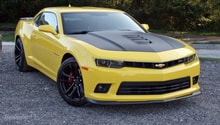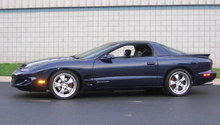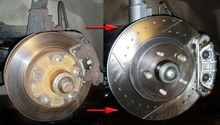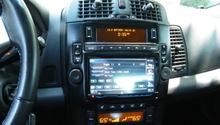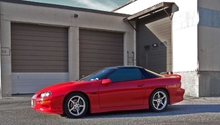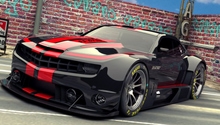Camaro and Firebird: Suspension Modifications
A vast array of suspension modifications are available for the 4th generation Camaro and Firebird. No matter whether your main focus is a road course, dragstrip, or just looking good at the show, your suspension can easily be set up perfectly.
This article applies to the Chevrolet Camaro and Pontiac Firebird (1993-2002).
The fourth generation Camaro and Firebird are equipped with a suspension from the factory that was good enough for most people, and for the amount of power they made when new. General Motors sought to provide the owners with a comfortable ride, good acceleration, and predictable handling for a relatively low cost. As you begin to push your Camaro/Firebird past its factory limits, the aftermarket suspension world has you covered. Large improvements in traction, body roll, looks and handling can be made without a whole lot of custom fabrication. Read on and learn about the different components available for the F-body suspension and how the aftermarket version will benefit you.
Suspension Modifications
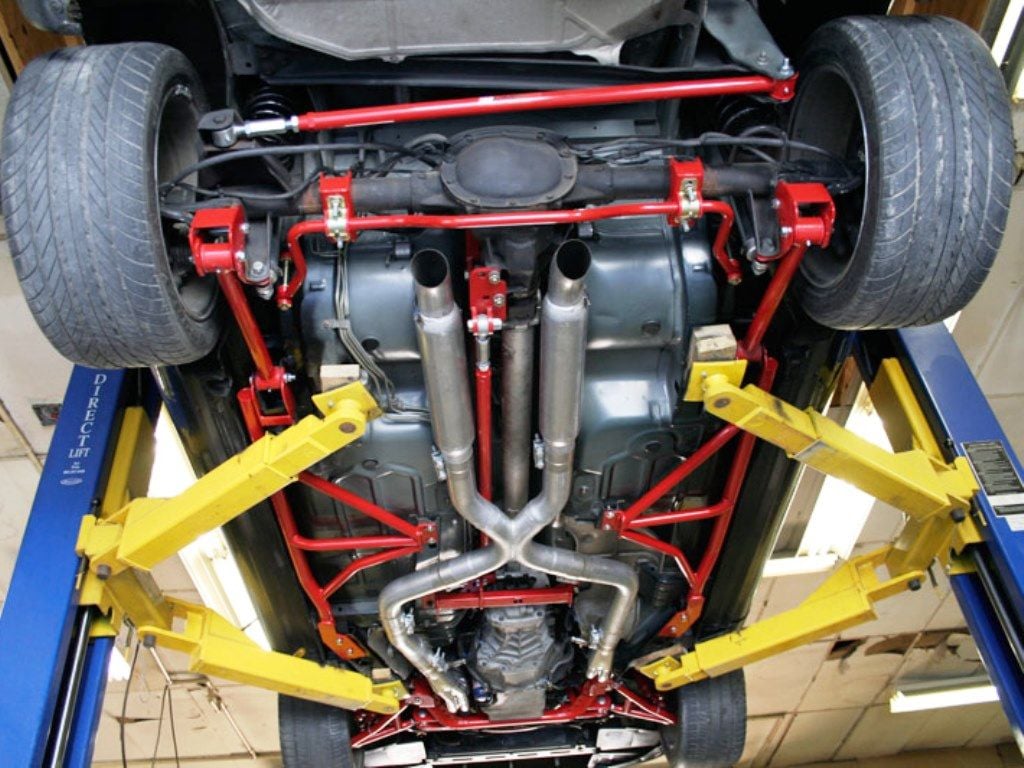
Shocks
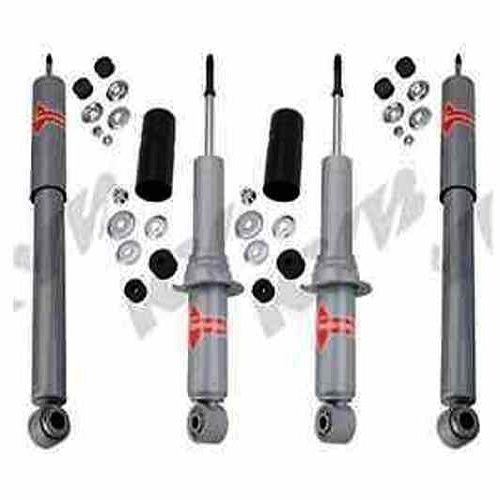
DIY Cost – $200-$1000
Professional Cost – Parts, plus $200-$300 for labor
Skill Level – Easy, but the front shocks require a coil spring compressor.
You need new shocks anyway, most likely, as all 4th gen F-bodies are now more than ten years old, so why not upgrade while you are at it? A high quality, gas charged or monotube shock will dampen body motions better, for more traction in corners and over bumps, without effecting ride quality too much. Drag racers have their own special shocks, often adjustable for more or less damping for better weight transfer.
Lowering Springs
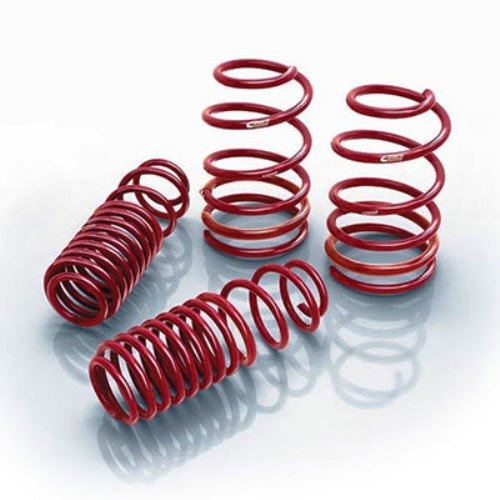
DIY Cost – $200-$300
Professional Cost – Parts, plus $200-$300 for labor
Skill Level – Easy, but require a special tool.
Lowering springs simply lower your vehicle compared to the factory setting, usually with slightly stiffer but shorter springs. Your ride will suffer at least slightly due to that increase in stiffness, and even more with stock shocks that may bottom out more easily. The lower center of gravity will make your car less prone to body roll and help with cornering, but may hurt your drag strip acceleration due to less weight transfer to the rear.
Subframe Connectors
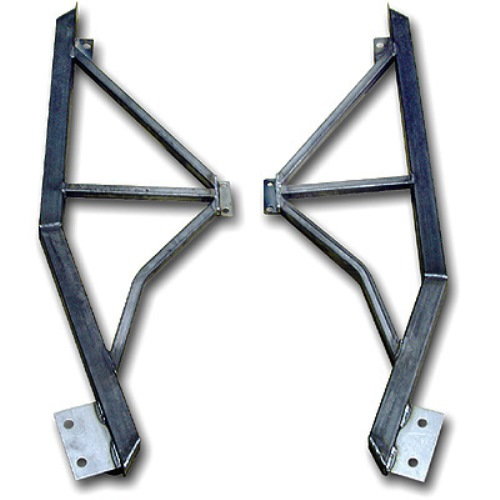
DIY Cost – $100-$500
Professional Cost – Parts, plus $100-$300 for labor
Skill Level – Easy to moderate, some kits require welding and drilling.
Subframe connectors stiffen the whole chassis by connecting the front and rear subframes. The uni-body 4th generation Camaro and Firebird had a quite stiff body structure from the factory, at least compared to previous generations. But compared to the levels of traction and acceleration you can get with modern tires, as well as aftermarket power and handling, they certainly can use this improvement. The easiest subframe connectors to use simply bolt into existing holes in the underside of your car, but the most effective ones weld in fully, or require weld in brackets and then bolt in. Subframe connectors increase your handling no matter what you use the car for, and have no negative effects on the ride.
Sway Bars
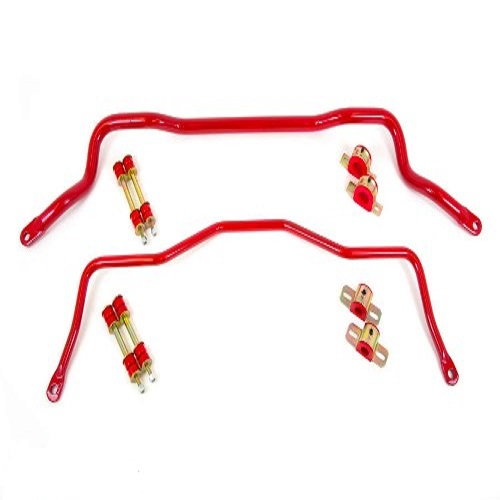
DIY Cost – $200-$600
Professional Cost – Parts, plus $100-$200 for labor
Skill Level – Easy, sway bars can be bolted on with basic hand tools.
Sway bars are more accurately called anti-sway bars, and work by tying together the wheels on left and right side of the car, so it has a harder time leaning over into corners. Drag racers often ditch them in the name of weight savings, and really don't need them at all. But even spirited street drivers can use a stiffer rear bar to balance the handling and lessen understeer. A balanced aftermarket front and rear set of sway bars is a must if you plan on doing track days or road racing your F-body.
Tubular Control Arms
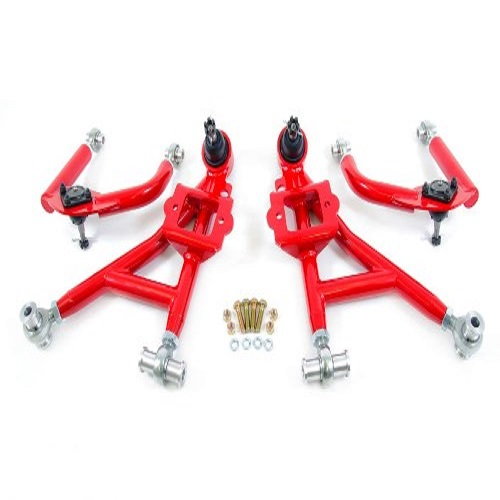
DIY Cost – $200-$800 front, $100-500 rear
Professional Cost – Parts, plus $200-$300 for labor
Skill Level – Moderate, may require some special tools.
Tubular lower control arms are made of high quality steel and are much stronger as well as stiffer than the factory stamped versions. Aftermarket control arms can also be purchased with adjustability and stiffer polyurethane bushings, or even solid bushings. Sticky, modern tires put much more force into the front suspension than GM thought possible with stock 1990's wheel and tire packages. For the best handling, you really need to eliminate any unpredictable flex in the chassis, and the stamped factory arms are one of the places you can do that.
The rear suspension of the F-body can use some stiffening, too, and the aftermarket has tubular control arms and a tubular torque arm for you. For drag racing, especially with a power adder, you need stiffer tubular rear arms to keep the axle from wrapping up.
Watts Link/Panhard Bar
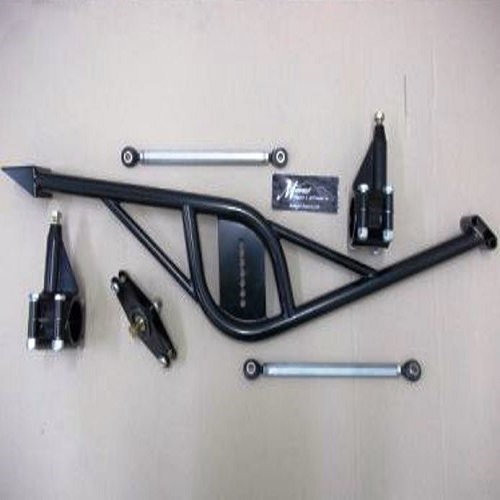
DIY Cost – $100-$300 Panhard Bar, $700-1000 Watts Link
Professional Cost – Parts, plus $100-$200 for labor
Skill Level – Easy; most kits require no fabrication or modification.
The rear suspension of the 4th generation F-body is almost the same as the 3rd generation, which evolved from designs used in the 1970's. One of the biggest issues is the flexible, non-adjustable stock panhard bar. This bar locates the axle from side to side, and for proper handling needs to be parallel to the ground at normal ride height. If you lower your car, you need an adjustable panhard bar. For an upgrade in handling, a Watts link replaces the panhard bar with two smaller bars and pivot, so as to keep the axle centered as it goes up and down. A panhard bar by design allows the rear to more side to side several inches at the extremes of its travel.
Coilovers
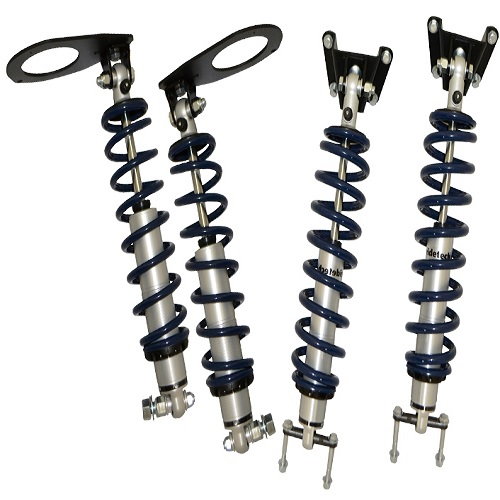
DIY Cost – $1,000-$2,000
Professional Cost – Parts, plus $300-$400 for labor
Skill Level – Moderate; may require special tools.
Coilovers (or more properly adjustable coilovers, since GM equipped the F-body with non-adjustable coilovers by design) allow adjustment of spring preload and ride height, and often damping characteristics, all in one unit. Coilovers can be purchased with adjustability suited for cornering, drag racing, or road racing. For a really low ride, or the ultimate in adjustability for competition, the way to go is with a quality name brand coilover.
Related Discussions
- Best Suspension Mods for the Money - LS1tech.com
- Bang for the Buck Suspension Mods - LS1tech.com
- Suspension Upgrades - LS1tech.com

